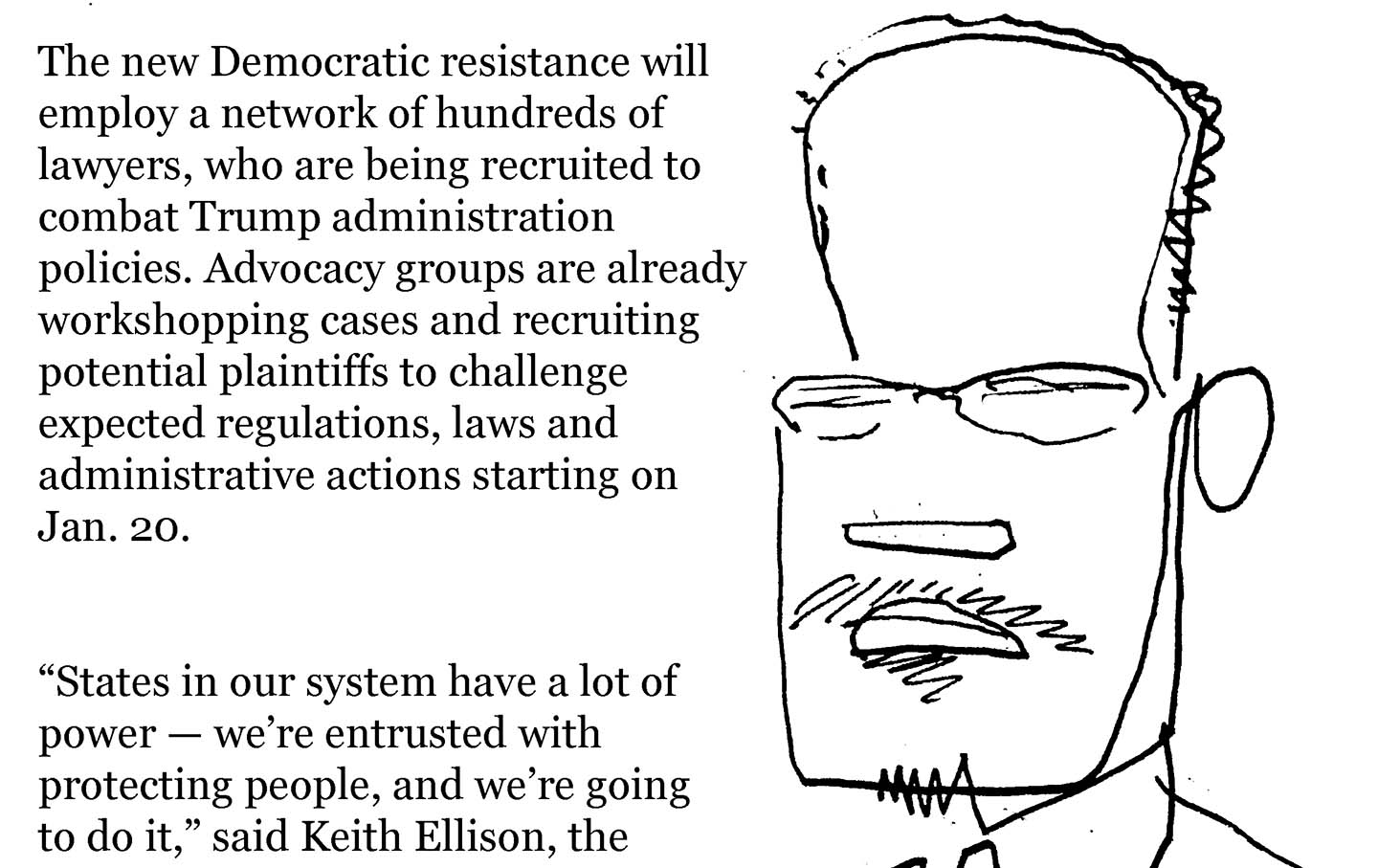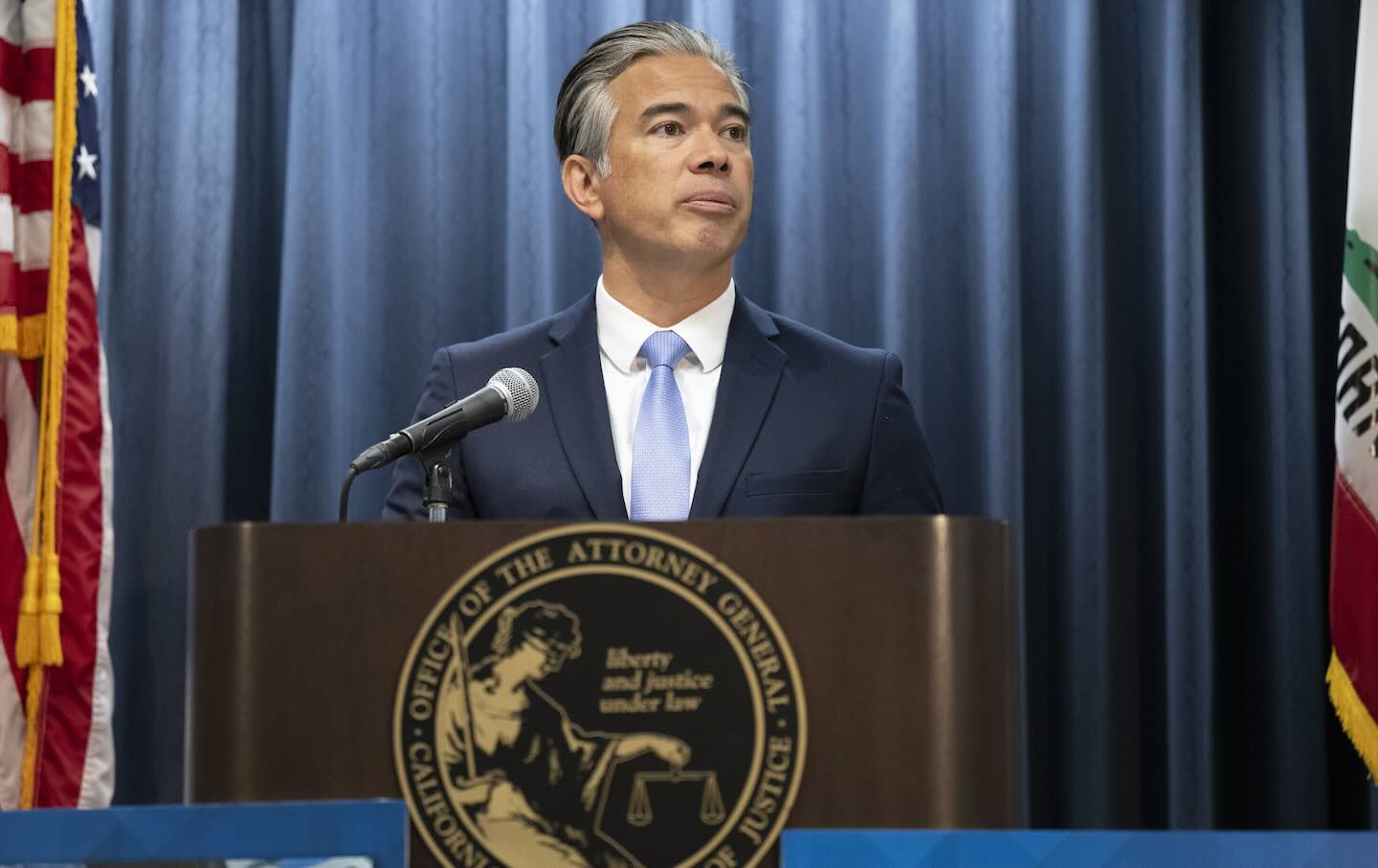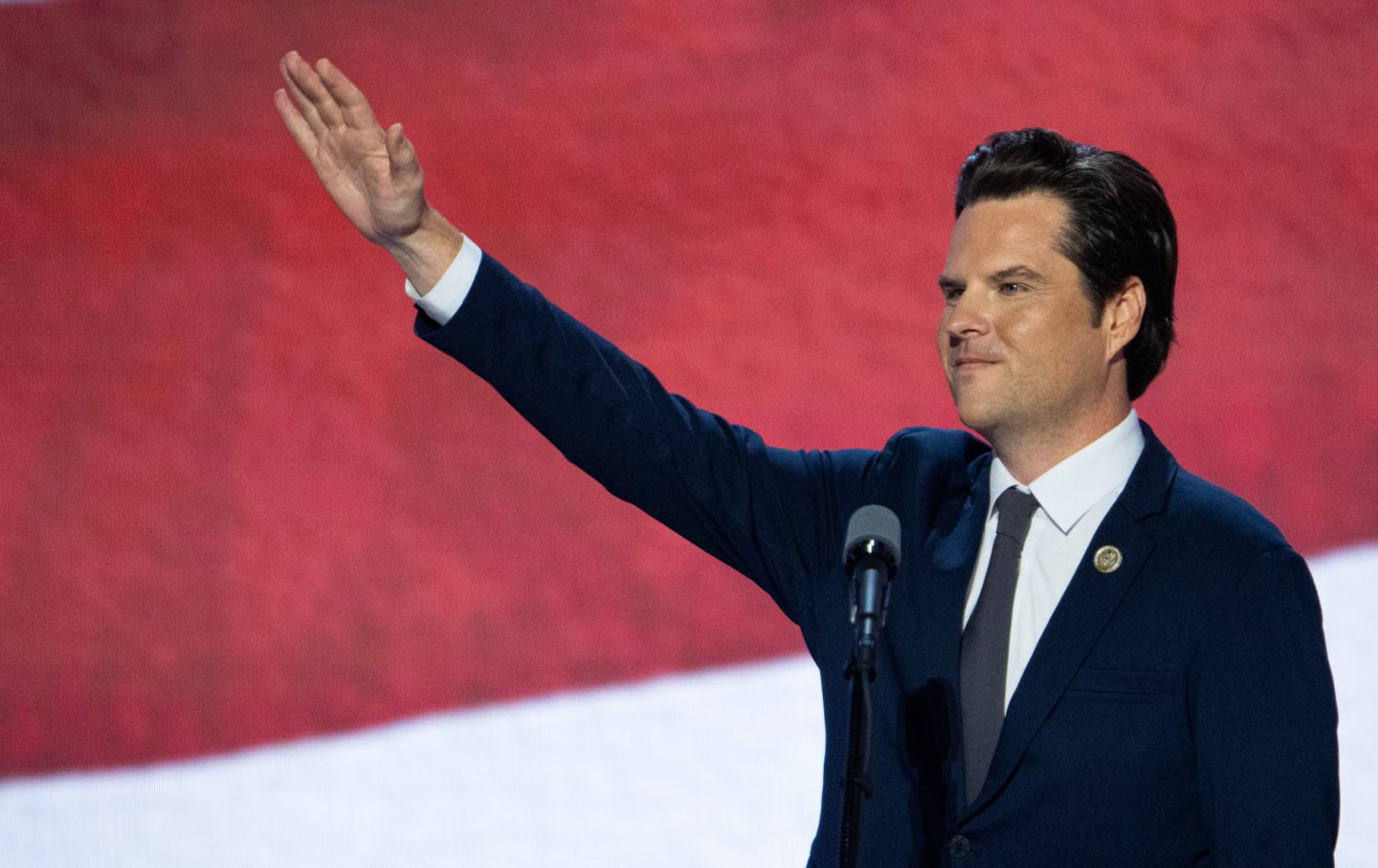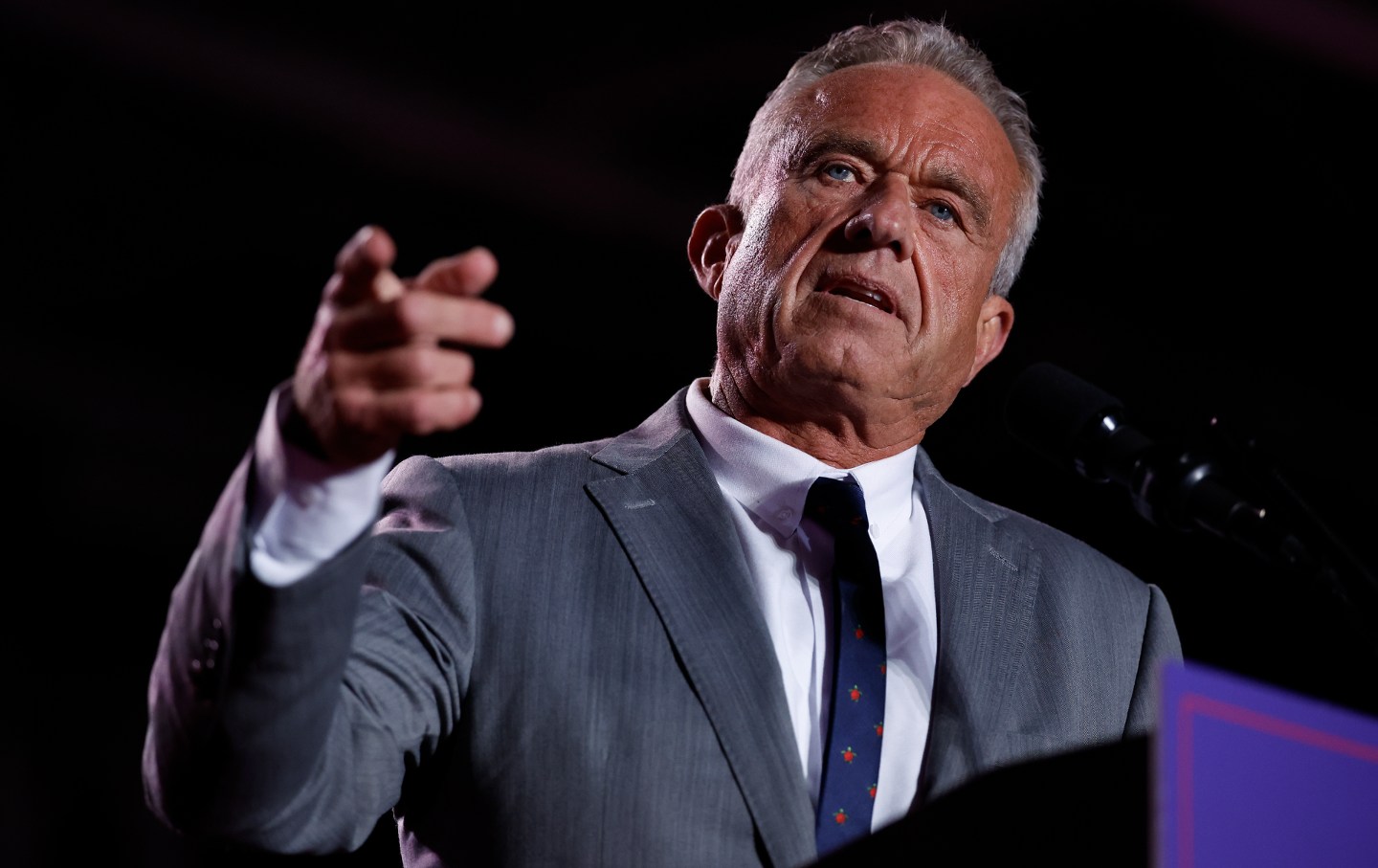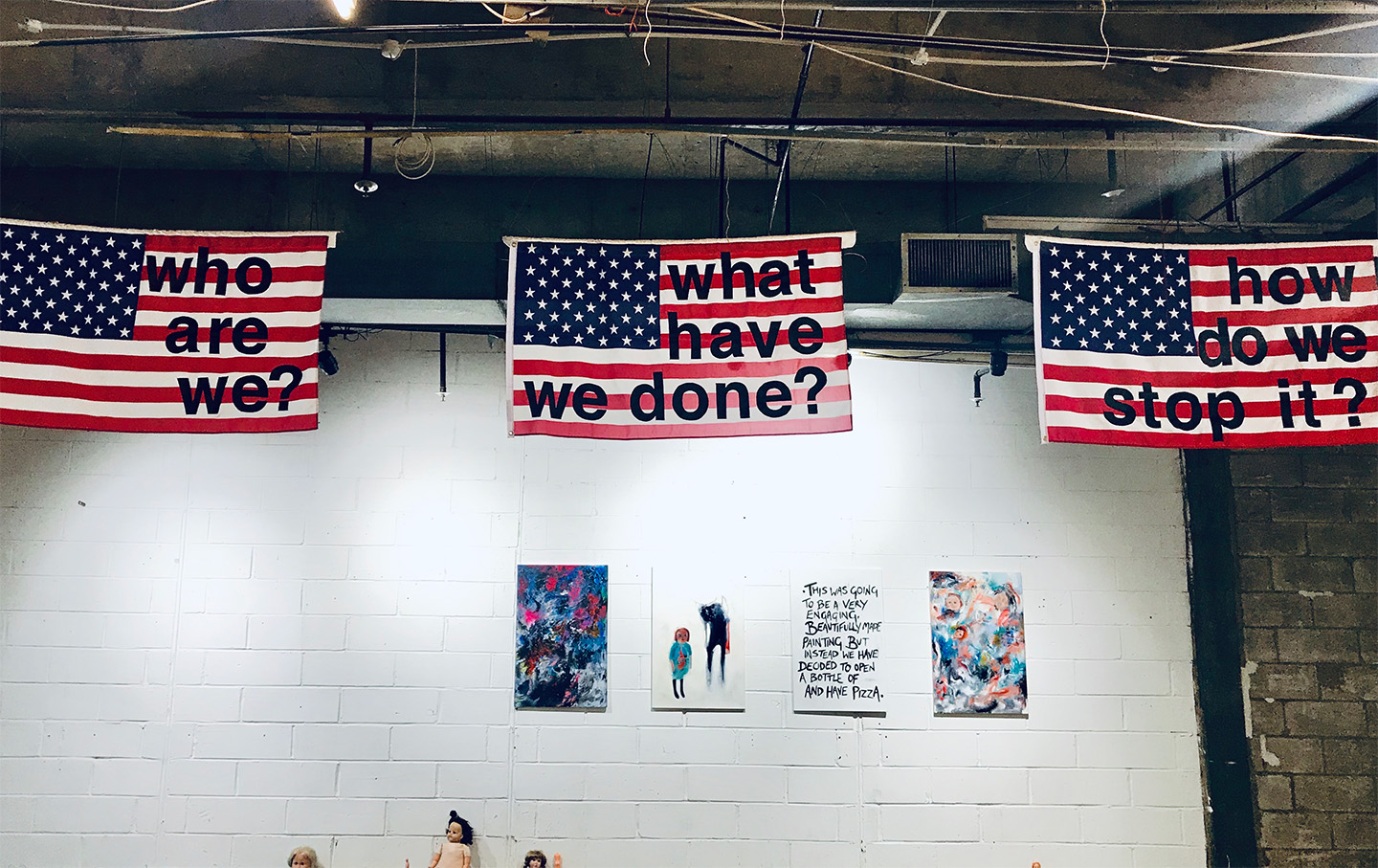Democrats Must Do Everything They Can to Block the Dangerous Nonprofit Bill
The House passed a bill aimed at giving the government sweeping powers to crush nonprofits and attack supporters of Palestine. Democrats need to stand firmly in its way.
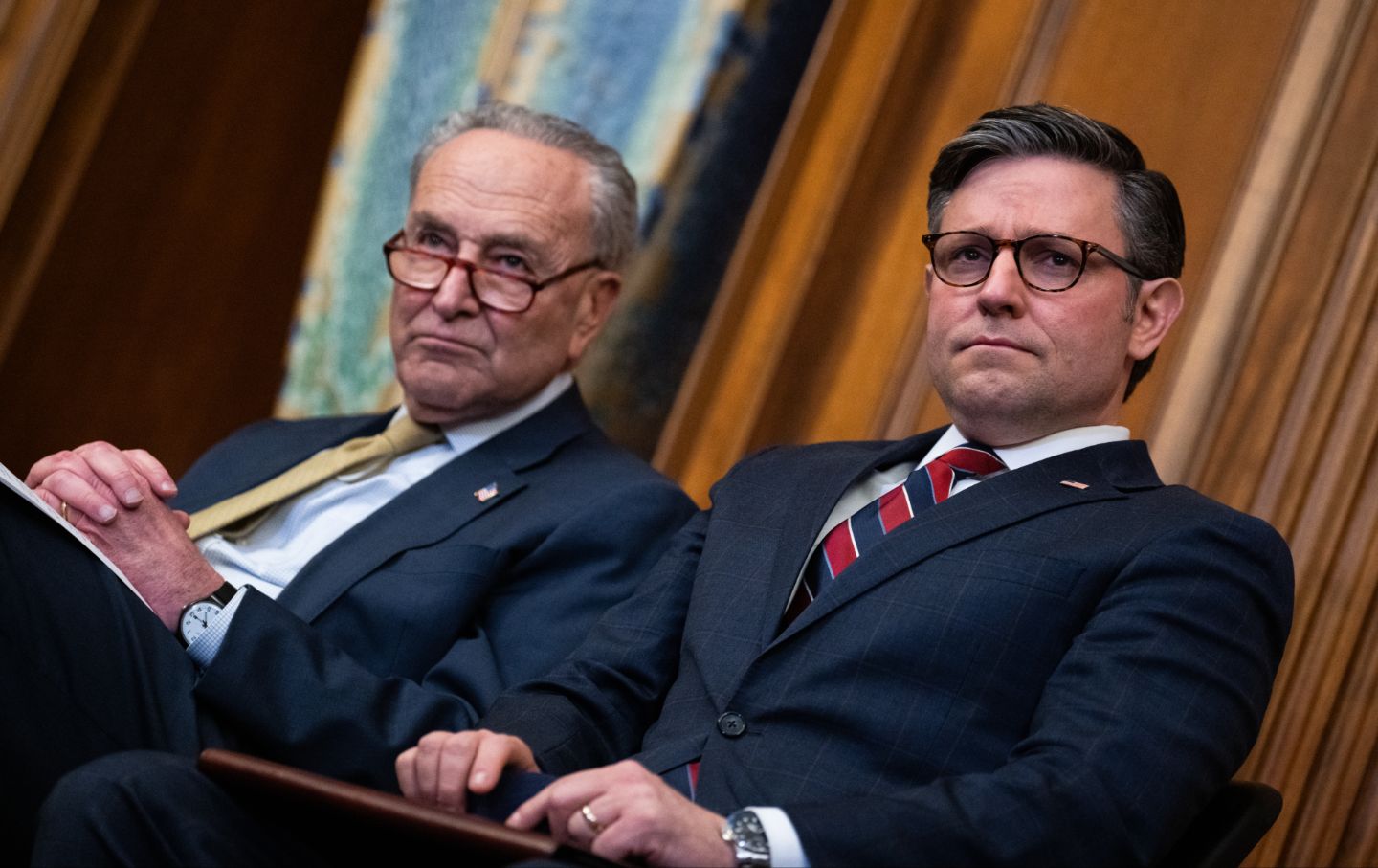
Chuck Schumer and Mike Johnson attend a Menorah lighting to celebrate the eight-day festival of Hanukkah, in the US Capitol on Tuesday, December 12, 2023.
(Tom Williams / CQ-Roll Call, Inc via Getty Images)While President-elect Donald Trump doesn’t return to office until January 20, Congress is already advancing the most sweeping and dangerous terrorism legislation in a generation, which would give him the power to shut down legitimate civil society groups doing important charitable, community organizing, human rights, and humanitarian work.
Earlier this week, the House passed HR 9495, an amendment to the tax code that would empower the Treasury Department to unilaterally brand nonprofit groups as “terrorist supporting organizations” and suspend their charitable tax exemption, without giving the groups any due process or access to the evidence against them. The resulting stigma of such a designation would almost certainly be enough to scare off banks, likely depriving these groups of the ability to function altogether.
The drive to kill nonprofits is dangerous no matter who is president, and, in the past few weeks, most House Democrats appear to have woken up to the risks of the legislation. Fifty-two Democrats voted to support the bill as recently as last week, but by the time a subsequent vote came around on Thursday, only 15 voted in favor. But that was still enough to give Republicans the votes they needed to pass it. Going forward, the demand from everyone watching this process should be clear: Even one Democratic vote is one too many, and Senate Democrats should promise that they will not support the legislation.
It’s not hard to see the reason behind this sudden attack on nonprofits. The bill’s sponsors have made no secret of their desire to smear certain nonprofits connected with campus protests against Israel’s war on Gaza as working at the behest of Hamas—a claim for which there is no evidence. Israel’s supporters in Congress and elsewhere have been equally clear about their agenda to crush Palestine human rights advocacy in the United States. Just last month, the Heritage Foundation unveiled “Project Esther,” a policy blueprint to attack supporters of Palestinian rights in the higher-education and profit sectors—essentially an anti-Palestinian Project 2025.
But the dangers extend far beyond any one issue. Two Republican House committee chairs earlier this year sent a letter to Treasury Secretary Janet Yellen demanding information on 20 groups, from Students for Justice in Palestine (which isn’t even a registered nonprofit) to liberal behemoths like the Open Society Foundations and the Bill and Melinda Gates Foundation.
Such persecutions would compound an already draconian legal landscape for nonprofits and political organizations. As civil liberties advocates have pointed out, providing “material support” to groups on the foreign terrorist organizations (FTO) list has been a federal crime since the 1990s. The material support statute extends far beyond blocking funds to punish many forms of speech and advocacy ordinarily protected by the First Amendment. And under the broad authority of sanctions laws, the government has also asserted the authority to freeze the assets of US-based organizations without due process, shutting down multiple American Muslim charities after 9/11 as part of a broader crackdown that targeted Palestinians in the Chicago area in particular.
The danger of the new proposal lies in disguising sweeping powers to shut down civil society groups as incremental change. Federal agencies maintain many lists of alleged terrorist organizations through designation processes that have long been criticized as opaque, unreviewable, and discriminatory against Muslims. Because these mechanisms have been applied almost exclusively to foreign groups, courts have largely upheld them on the theory that the executive branch enjoys a comparatively free hand in dealing with international threats.
Thus, despite the massive post-9/11 expansion of the government’s surveillance and policing powers, many of the laws targeting foreign terrorist groups have never had a domestic counterpart. The material support statute is the exception that proves the rule: It allows punishment of US citizens, but only for supporting groups on the FTO list. The main legal reason for this has been the First Amendment’s protection of the freedom of association. The main political reason has been pushback from right-wing politicians sympathetic to white nationalist groups, as well as from progressive civil libertarians.
This bill creates yet another due process–free terrorism list, but one that is parasitic on the existing ones. By tying the designation of US nonprofits to existing terrorism lists designed only for foreign groups that are largely Muslim in membership, the bill creates a domestic terrorism regime that will almost inevitably exclude white nationalists.
It is unsurprising that the coalition necessary to overcome skepticism from left and right alike toward proscribing domestic organizations on terrorism grounds is catalyzed by the bipartisan animosity to Palestinian liberation on Capitol Hill. There is a longer history at work here: Nearly every major development in anti-terrorism law in the decades before 9/11 was motivated in significant part by bipartisan opposition to the Palestinian national liberation movement and its allies. The word “terrorism” first appeared in a 1969 federal statute in a law restricting humanitarian aid to Palestinian refugees. The 1996 material support statute resulted from intense lobbying by pro-Israel groups seeking a crackdown on activism in the Palestinian diaspora. It did not take long for these laws to be used against Muslim communities more broadly and to contribute to an erosion of civil liberties for all Americans. Similarly, it is all too easy to see how the “terrorist-supporting organizations” list could grow and form the basis for wider forms of sanction and domestic repression, particularly under a second Trump administration.
Democrats are still in control of the Senate until January, and they will still have the filibuster after that. If they don’t do everything they can to prevent this bill from becoming law, it will only be the latest betrayal in a long and self-defeating embrace of draconian right-wing policies—and likely a sign of far worse to come.
We cannot back down
We now confront a second Trump presidency.
There’s not a moment to lose. We must harness our fears, our grief, and yes, our anger, to resist the dangerous policies Donald Trump will unleash on our country. We rededicate ourselves to our role as journalists and writers of principle and conscience.
Today, we also steel ourselves for the fight ahead. It will demand a fearless spirit, an informed mind, wise analysis, and humane resistance. We face the enactment of Project 2025, a far-right supreme court, political authoritarianism, increasing inequality and record homelessness, a looming climate crisis, and conflicts abroad. The Nation will expose and propose, nurture investigative reporting, and stand together as a community to keep hope and possibility alive. The Nation’s work will continue—as it has in good and not-so-good times—to develop alternative ideas and visions, to deepen our mission of truth-telling and deep reporting, and to further solidarity in a nation divided.
Armed with a remarkable 160 years of bold, independent journalism, our mandate today remains the same as when abolitionists first founded The Nation—to uphold the principles of democracy and freedom, serve as a beacon through the darkest days of resistance, and to envision and struggle for a brighter future.
The day is dark, the forces arrayed are tenacious, but as the late Nation editorial board member Toni Morrison wrote “No! This is precisely the time when artists go to work. There is no time for despair, no place for self-pity, no need for silence, no room for fear. We speak, we write, we do language. That is how civilizations heal.”
I urge you to stand with The Nation and donate today.
Onwards,
Katrina vanden Heuvel
Editorial Director and Publisher, The Nation

